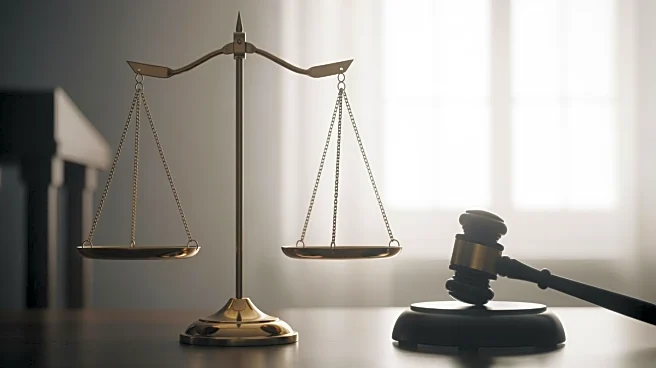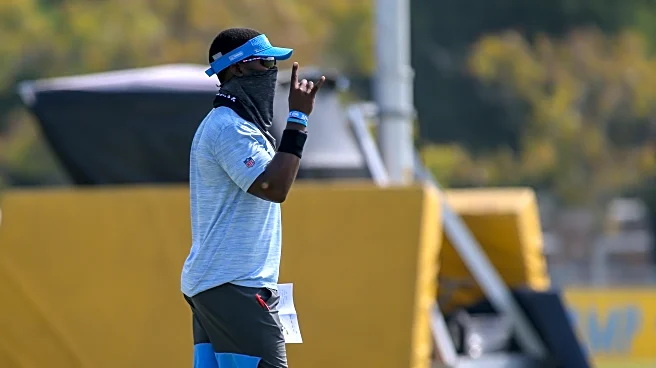What's Happening?
A federal judge, Sara Ellis, has issued a preliminary injunction against federal agents in Chicago, restricting their use of force against peaceful protesters and journalists. This decision follows a lawsuit alleging excessive force by agents during an immigration
crackdown in the area. The Department of Homeland Security (DHS) criticized the injunction as an extreme act that endangers law enforcement officers. The ruling is part of ongoing legal challenges related to President Trump's deployment of National Guard troops and increased immigration enforcement in Chicago, which has led to over 1,000 arrests. Ellis had previously prohibited the use of tear gas and other riot control measures against peaceful demonstrators. The injunction also mandates agents to wear body cameras to ensure accountability.
Why It's Important?
The ruling is significant as it addresses concerns over federal law enforcement's handling of protests and immigration enforcement in Chicago. It highlights the tension between local authorities and federal agents, particularly in cities with high immigrant populations. The decision could impact how federal agents operate in other cities facing similar protests and enforcement actions. It also underscores the ongoing debate over the balance between national security and civil liberties. The injunction aims to protect the rights of protesters and journalists, potentially influencing future legal standards for law enforcement conduct during demonstrations.
What's Next?
The Trump administration is expected to appeal the injunction, which could lead to further legal battles. The order will remain in effect pending additional proceedings, and the requirement for agents to wear body cameras may set a precedent for increased transparency in law enforcement operations. The outcome of the appeal could affect federal enforcement strategies in other cities and shape the national discourse on immigration and protest rights.
Beyond the Headlines
The ruling raises ethical questions about the use of force by law enforcement and the protection of civil liberties during protests. It may prompt discussions on the role of federal agents in local law enforcement and the need for accountability measures such as body cameras. The case also highlights the broader implications of immigration policies and their enforcement in urban areas, potentially influencing public opinion and policy decisions.















